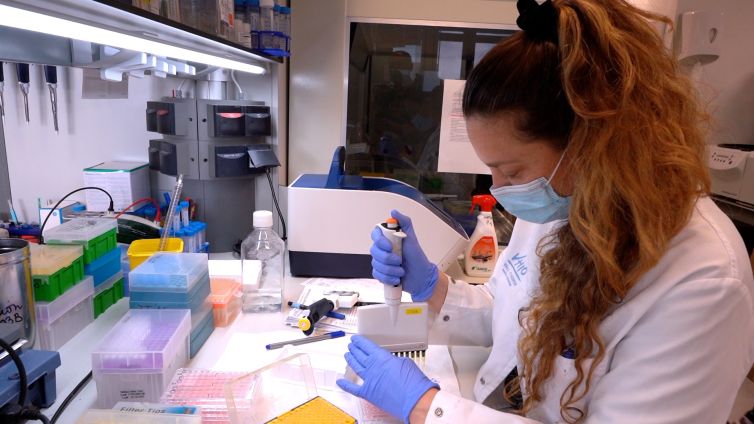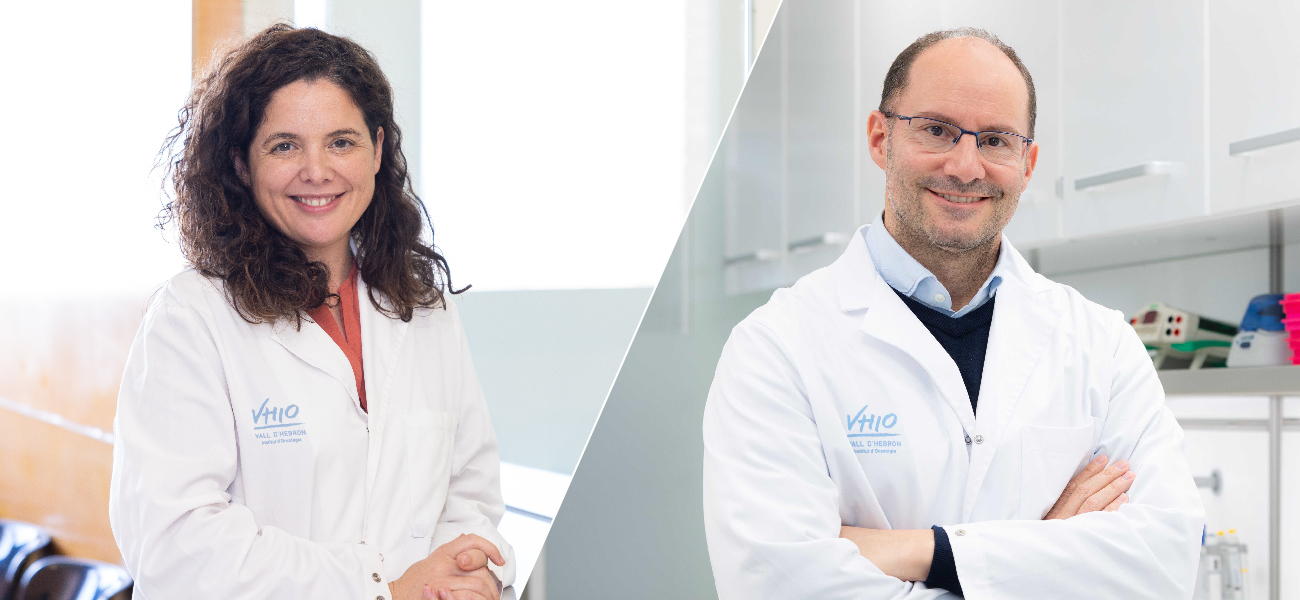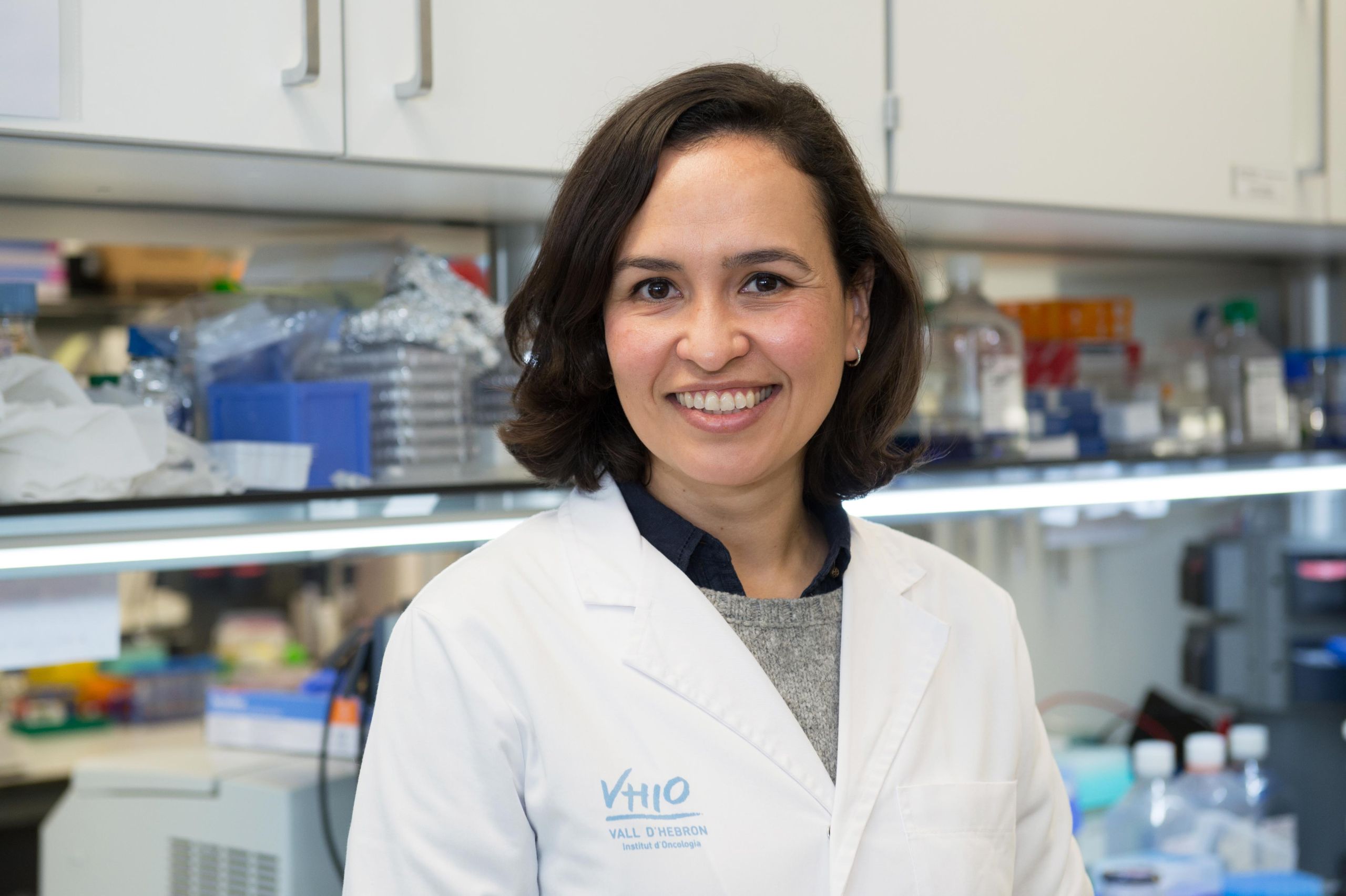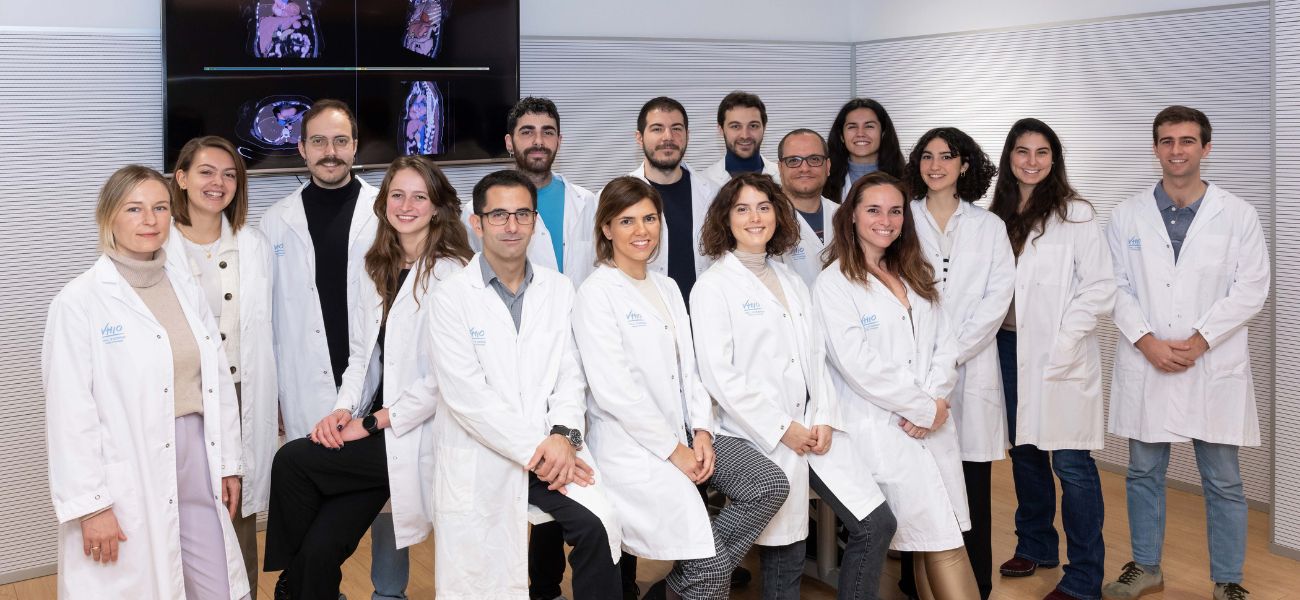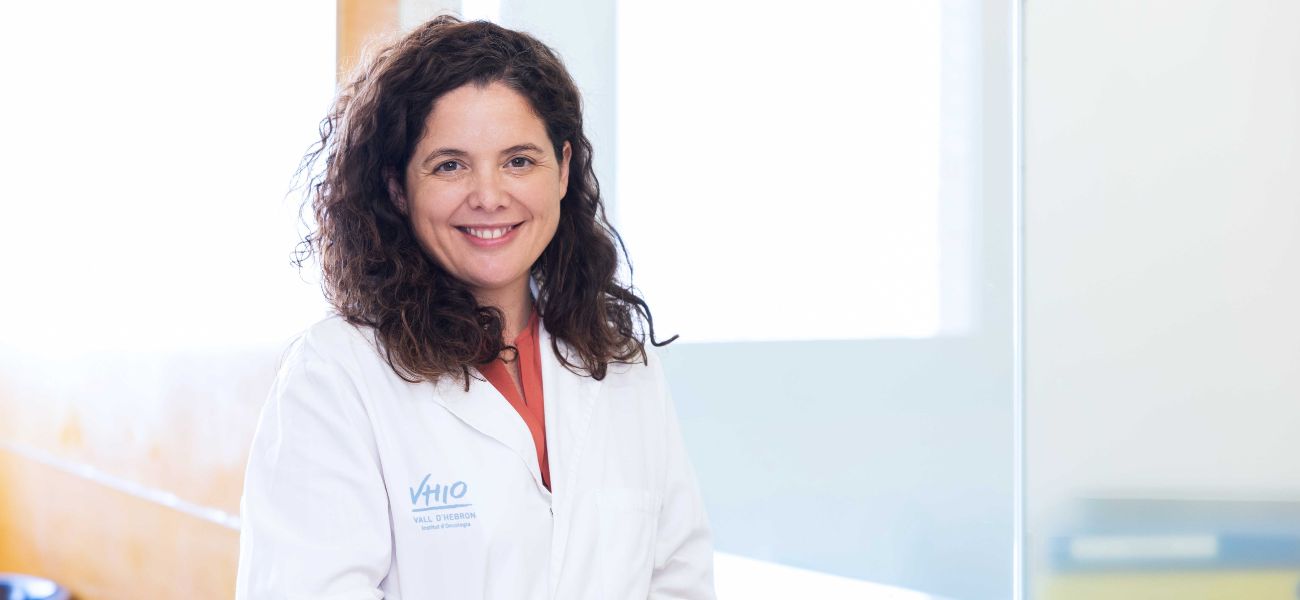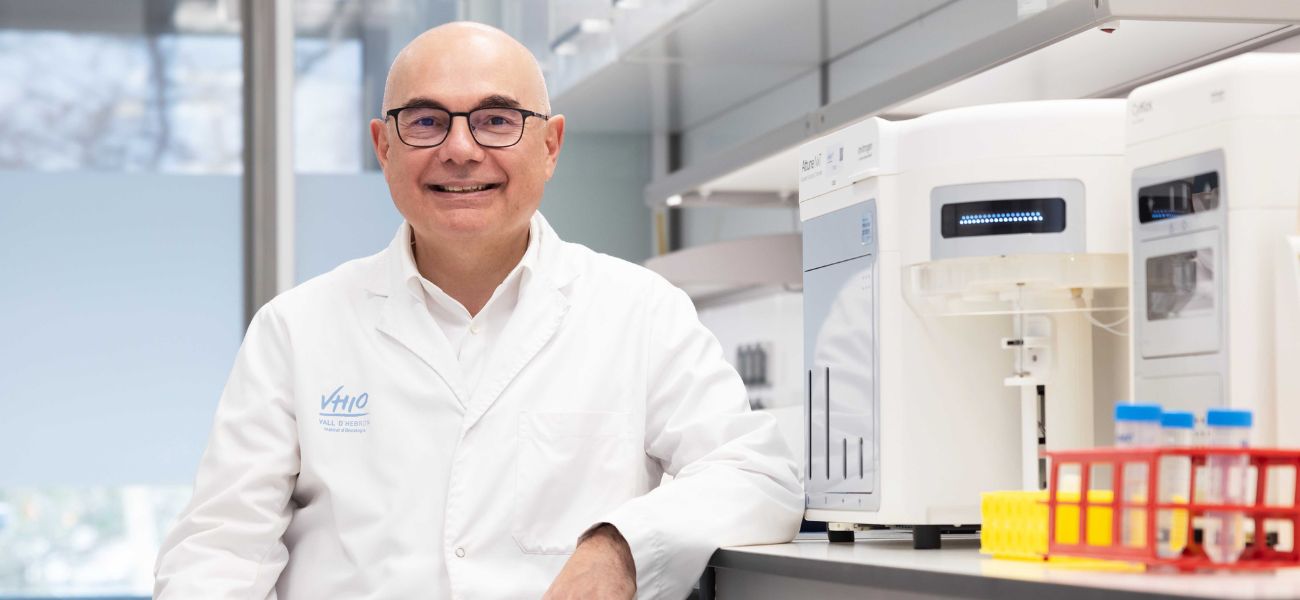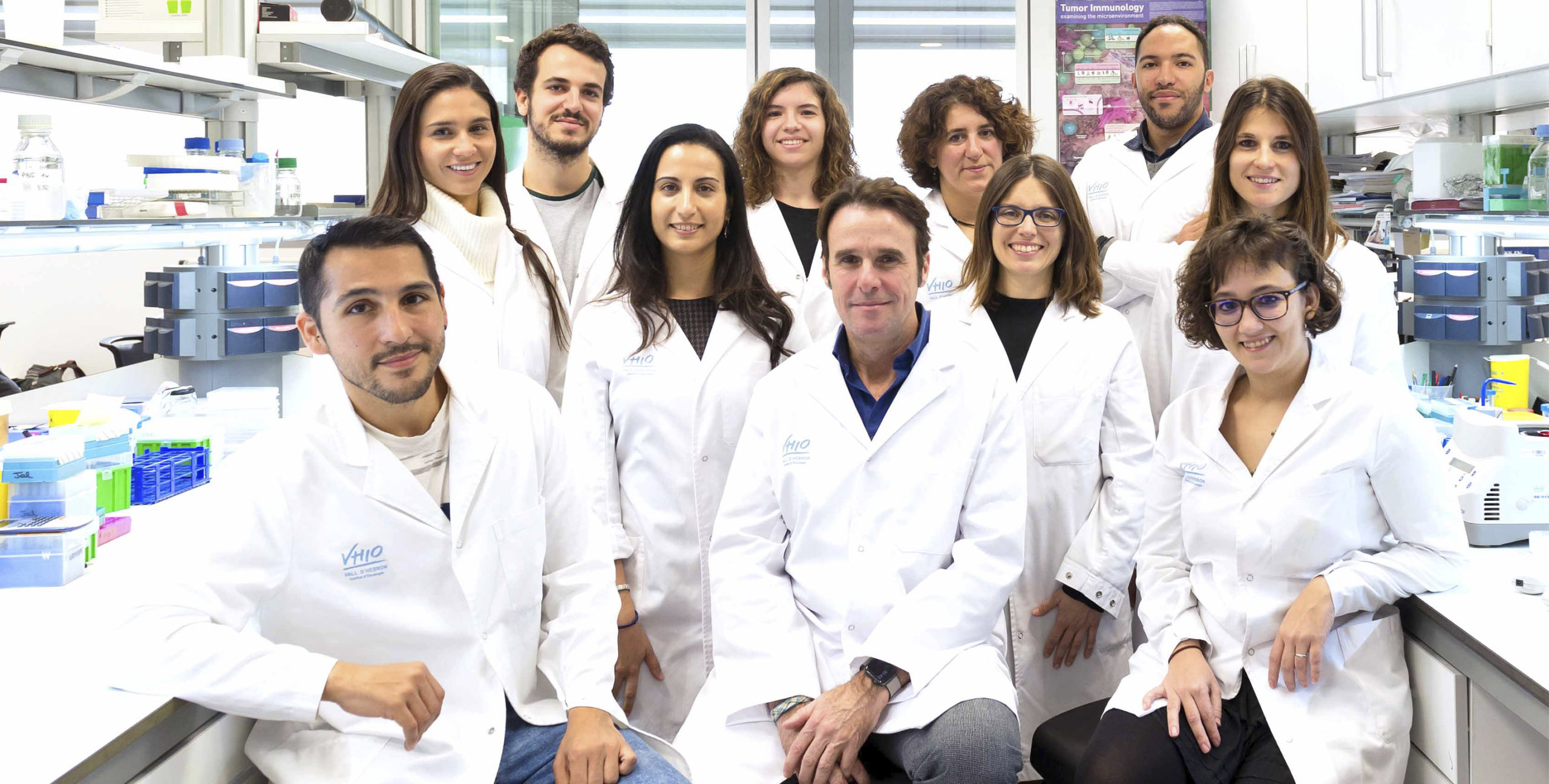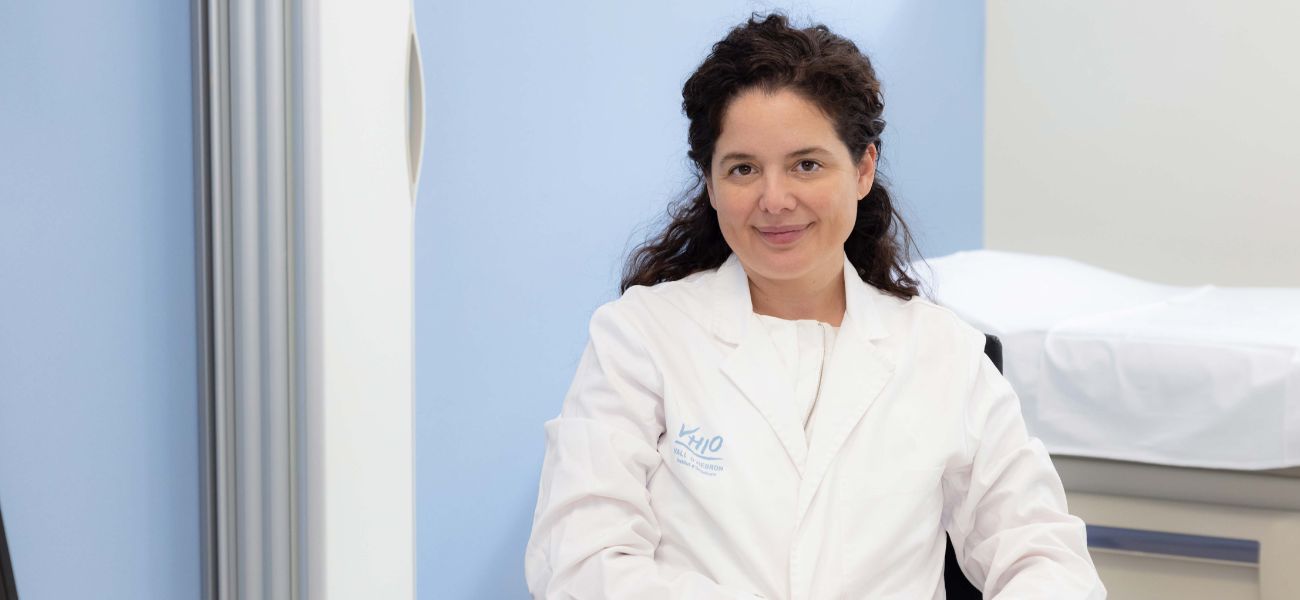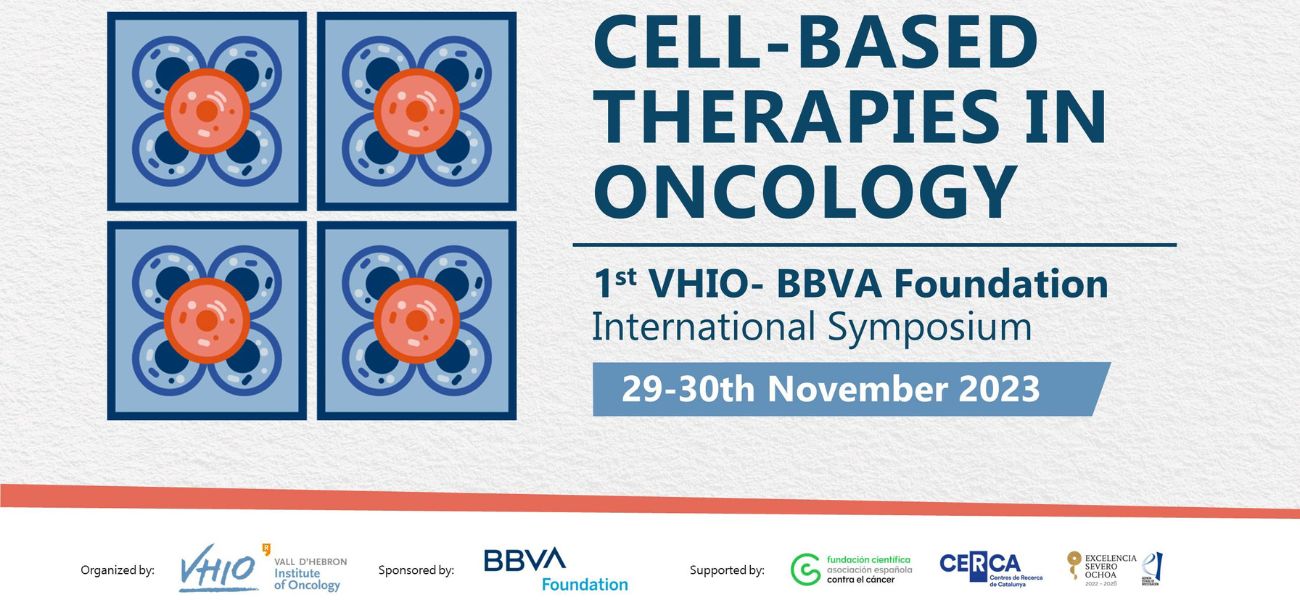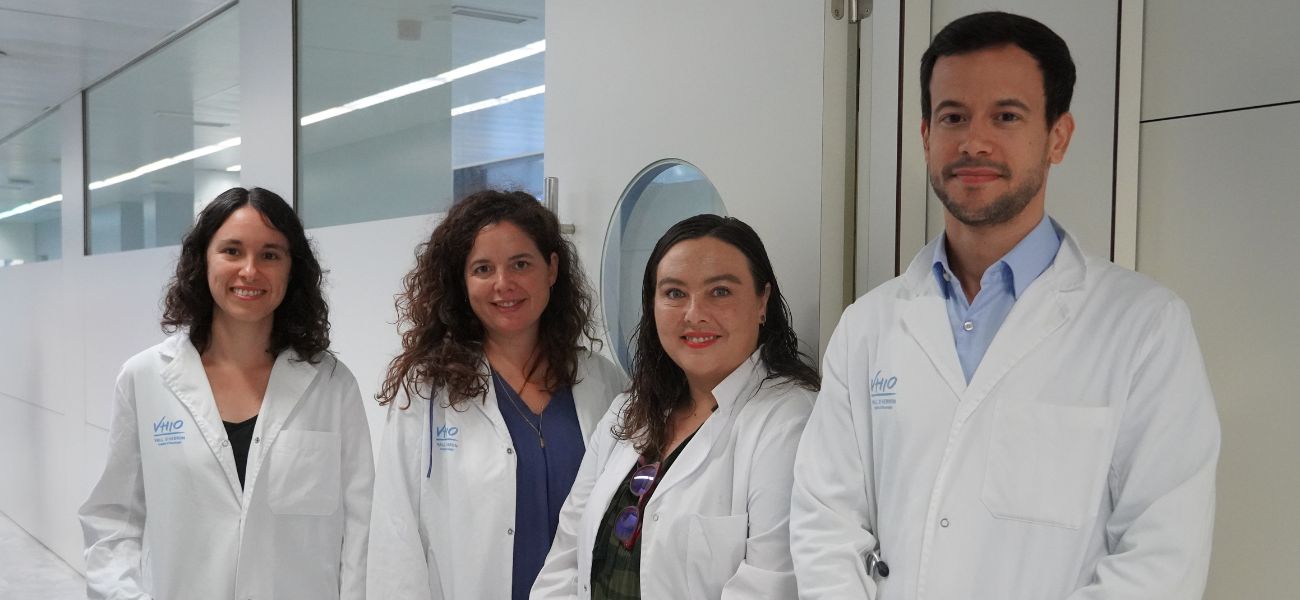
The VHIO-BBVA Foundation Comprehensive Program of Cancer Immunotherapy & Immunology (CAIMI): harnessing the immune system to advance cancer immunotherapies
One hallmark of cancer is the capacity of tumour cells to evade the immune system through multiple mechanisms. However, harnessing the immune response through cancer immunotherapy has the potential to achieve durable and even complete tumour regression of metastatic disease with few or no secondary effects. Therapeutic advances in cancer immunotherapy have rapidly emerged in the past few years, reflecting the importance of the interaction between the human immune system and cancer. But despite the successful application of cancer immunotherapy, only a fraction of patients treated respond and there is an urgent need to personalize these therapies. Additional challenges in the field include enhancing the effectiveness of current immunotherapies and developing novel therapies. Through the VHIO-BBVA Foundation Comprehensive Program of Cancer Immunotherapy & Immunology (CAIMI), we aim to address the pressing needs to advance cancer immunotherapies.
Thanks to the CAIMI programme VHIO co-funds several translational projects linked to the early clinical development phases of immunotherapy, as well as an Investigator Initiated Trial. These pioneering research endeavours are currently underway.
CAIMI counts on the expertise of VHIO’s Elena Garralda, Principal Investigator of VHIO’s Early Clinical Drug Development Group, and Director of our Research Unit for Molecular Therapy of Cancer (UITM) – CaixaResearch, who heads up the program’s clinical research, and Alena Gros, Principal Investigator of our Tumor Immunology and Immunotherapy Group, who leads its translational research.
VHIO sponsors its first Investigator Initiated Trial using Tumour Infiltrating Lymphocytes (TILs) to assess their safety and tolerability in advanced epithelial tumors and immune checkpoint blockade resistant solid tumors (NCT05141474). This milestone, based on Dr Alena Gros’ research, was made possible thanks to the collaborative work of a multidisciplinary team that includes experienced translational, clinical, cellular production, regulatory and management profiles.

Dr Alena Gros, PhD
Group Leader of VHIO’s Tumour Immunology and Immunotherapy Group
Her project “Mining the epigenetic and transcriptomic landscape of PD-1+ lymphocytes for potential biomarkers of response to cancer immunotherapy using Atezolizumab” will shed some light into the functional qualities of tumor-infiltrating and circulating tumor-reactive cells and their potential impact on the efficacy of anti-PD-L1 therapy.
Elena Garralda, MD
Group Leader of VHIO’s Early Clinical Drug Development and Director of our Research Unit for Molecular Therapy of Cancer (UITM) – CaixaResearch
Dr Garralda is leading two translational research projects:
-
The 360 RIO Project (360º Resistance in Immuno-Oncology): Evaluation of mechanisms of resistance and predictors of response/toxicity in patients treated with immunotherapy.
This project aims to identify and characterize mechanisms of resistance to immunotherapy which will help to rationally develop trials with combinatory immunotherapy regimens and sequence of treatments. Thanks to the generosity of the patients under treatment with immunotherapy, through this project, a vast amount of biological samples will be obtained. These samples are of paramount importance to understand which patients may benefit from receiving immunotherapy.
-
Implementing Immunomics in early drug development of immunotherapy:The VHIO IMMUNOGRAM
In this proposal a comprehensive and validated algorithm for better selecting those patients who may benefit from receiving immunotherapy will be developed. Samples from the 360RIO project are being used to implement the VHIO Immunogram.
Joan Seoane, PhD
Group Leader of VHIO´s Gene Expression and Cancer Group
During the CAIMI program, Dr Seoane was granted projects to co-finance a research line of his group. In this sense, Dr Seoane focused on the study of the Tumor Microenvironment in Brain Metastasis, and the role of LIF in the response to anti-PD1 therapy. This research produced groundbreaking outcomes resulting in a high-impact publication.
Joaquín Arribas, PhD
Group Leader of VHIO´s Growth Factors Group
Thanks to the CAIMI program, Dr Arribas was able to deepen the research on immunotherapy against HER2‐positive breast tumors. This included the development of Chimeric Antigen Receptors (CAR) against a tumor-specific antigen expressed in some breast and gastric cancers, and the study of the acquired resistance to T cell bispecific antibodies and CAR-T targeting HER2.
Laura Soucek, PhD
Group Leader of VHIO’s Models of Cancer Therapies Group
Throughout the CAIMI program, Dr Soucek received funding to study the relation of MYC and the immunotherapeutic resistance in KRAS-driven NSCLC. These studies included the assessment of the therapeutic effect of the in-house developed Omomyc treatment in 3D NSCLC organoids and humanized xenograft models.
A robust training and educational program is fundamental to maintaining the center at the forefront of immuno-oncological research. In this regard, thanks to CAIMI, VHIO is providing the future generations of healthcare students, researchers and professionals with high-level training at different stages of their careers. More information can be found in our VHIO Academy page
Mobility Fellowships for IO Medical Researchers
The main goal of the mobility fellowships is to support MD scientists who want to further progress in their translational research training by undertaking internships fostering specialist research training abroad. In addition, the mobility fellowships aim to intensify the networks of the researchers, to foster the internationalization of VHIO and to promote the training and career progression of the fellows. We have conducted successful clinical exchanges at Memorial Sloan Kettering Cancer Center and University College London.
International secondment fellowships for clinical residents and doctoral researchers
This program aims at fostering the training and career development of residents and doctoral researchers who are performing their research at VHIO by offering them the possibility to undertake an up to three-month secondment in any international cancer research institution to develop a project in immune-oncology. These secondments will expose the fellows to the highest standards of research and internationality. In addition, they will expand international networking opportunities and increase their adaptability to new work and cultural environments.
Undergraduate Fellowships
This programme aims at providing students who are undertaking their university degree (BSc or MSc) to have a first contact with research and in particular in the immunology field and establishing the basis for a start of a career in oncological research.
Scientific articles
- Gros A, Tran E, Parkurst MR, Ilyas S, Pasetto A, Groh EM, Robbins PF, Yossef R, Garcia-Garijo A, Fajardo CA, Prickett TD, Jia L, Gartner JJ, Ray S, Ngo L, Wunderllich JR, Yang JC, Rosenberg SA. Recognition of human gastrointestinal cancer neoantigens by circulating PD-1+ lymphocytes. J Clin Invest. 2019 Nov 1;129(11):4992-5004. Doi: 10.1172/JCI127967.
- Matos I, Martin-Liberal J, Garcia-Ruiz A, Hierro C, Ochoa de Olza M, Viaplana C, Azaro A, Vieito M, Brana I, Mur G, Ros J, Mateos J, Villacampa G, Berché R, Oliveira M, Alsina M, Élez E, Oaknin A, Muñoz-Couselo E, Carles J, Felip E, Rodon J, Tabernero J, Dienstmann R, Perez-Lopez R, Garralda E. Capturing Hyperprogressive disease with immune checkpoint inhibitors using RECIST 1.1 criteria. Clin Cancer Res. 2019 Nov 22. pii:clincanres.2226.2019. doi:10.1158/1078-0432.CCR-19-2226.
- Ligero M, Garcia-Ruiz A, Viaplana C, Villacampa G, Raciti MV, Landa J, Matos I, Martin-Liberal J, Ochoa-de-Olza M, Hierro C, Mateo J, Gonzalez M, Morales-Barrera R, Suarez C, Rodon J, Elez E, Braña I, Muñoz-Couselo E, Oaknin A, Fasani R, Nuciforo P, Gil D, Rubio-Perez C, Seoane J, Felip E, Escobar M, Tabernero J, Carles J, Dienstmann R, Garralda E, Perez-Lopez R. A CT-based Radiomics Signature Is Associated with Response to Immune Checkpoint Inhibitors in Advanced Solid Tumors. Radiology. 2021 Apr;299(1):109-119. doi: 10.1148/radiol.2021200928. Epub 2021 Jan 26. PMID: 33497314.
- Arenas EJ; Martínez-Sabadell A; Rius Ruiz I; et al; Arribas J. (1/10). 2021. Acquired cancer cell resistance to T cell bispecific antibodies and CAR T targeting HER2 through JAK2 down-modulation Nature Communications. 12-1237, pp.DOI: 10.1038/s41467-021-21445-4.
- Pascual-García M, Bonfill-Teixidor E, Planas-Rigol E, Rubio-Perez C, Iurlaro R, Arias A, Cuartas I, Sala-Hojman A, Escudero L, Martínez-Ricarte F, Huber-Ruano I, Nuciforo P, Pedrosa L, Marques C, Braña I, Garralda E, Vieito M, Squatrito M, Pineda E, Graus F, Espejo C, Sahuquillo J, Tabernero J, Seoane J. LIF regulates CXCL9 in tumor-associated macrophages and prevents CD8(+) T cell tumor-infiltration impairing anti-PD1 therapy. Nat Commun. 2019 Jun 11;10(1):2416. doi: 10.1038/s41467-019-10369-9.
Outreach activities
- Interview for El Mundo to Alena Gros:
https://www.elmundo.es/papel/historias/2018/11/22/5bf55bbf22601d99708b459f.html - Informative piece on LIF-1 publication and interview to Mònica Pascual, from Joan Seoane’s laboratory:
http://www.rtve.es/noticias/20190611/crean-nuevo-farmaco-oncologico-evita-metastasis-reduce-tumores/1955020.shtml - Informative piece on LIF-1 and interview to Joan Seoane for La Vanguardia:
https://www.youtube.com/watch?v=h_2WLvxLKd8&feature=emb_logo

